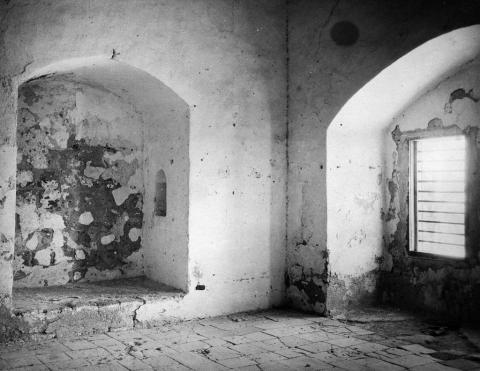Night hath succeeded day, and day hath succeeded night, and the hours and moments of your lives have come and gone, and yet none of you hath, for one instant, consented to detach himself from that which perisheth. Bestir yourselves, that the brief moments that are still yours may not be dissipated and lost. Even as the swiftness of lightning your days shall pass, and your bodies shall be laid to rest beneath a canopy of dust. What can ye then achieve? How can ye atone for your past failure?
Atonement
The Báb answered and said: 'What you have witnessed is true and undeniable. You belittled this Revelation and have contemptuously disdained its Author. God, the All-Merciful, desiring not to afflict you with His punishment, has willed to reveal to your eyes the Truth. By His Divine interposition, He has instilled into your heart the love of His chosen One, and caused you to recognize the unconquerable power of His Faith.'" This marvellous experience completely changed the heart of Ali Khan. Those words had calmed his agitation and subdued the fierceness of his animosity. By every means in his power, he determined to atone for his past behaviour. 'A poor man, a shaykh, he hastily informed the Báb, "is yearning to attain Your presence. He lives in a masjid outside the gate of Mah-Ku. I pray You that I myself be allowed to bring him to this place that he may meet You. By this act I hope that my evil deeds may be forgiven, that I may be enabled to wash away the stains of my cruel behaviour toward Your friends." His request was granted, whereupon he went straightway to Shaykh Hasan-i-Zunuzi and conducted him into the presence of his Master.
Siyyid ‘Abdu’l-Baqi sat and listened to the Báb. He heard His voice, watched His movements, looked upon the expression of His face, and noted the words which streamed unceasingly from His lips, and yet failed to be moved by their majesty and power. Wrapt in the veils of his own idle fancy and learning, he was powerless to appreciate the meaning of the utterances of the Báb. He did not even trouble to enquire the name or the character of the Guest into whose presence he had been introduced. Unmoved by the things he had heard and seen, he retired from that presence, unaware of the unique opportunity which, through his apathy, he had irretrievably lost. A few days later, when informed of the name of the Youth whom he had treated with such careless indifference, he was filled with chagrin and remorse. It was too late, however, for him to seek His presence and atone for his conduct, for the Báb had already departed from Kashan. In his grief, he renounced the society of his fellowmen, and led, to the end of his days, a life of unrelieved seclusion.
